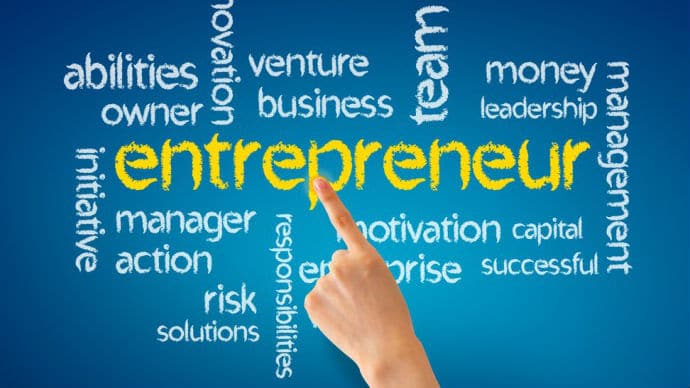Hult’s Executive MBA Class of 2014, which was based in London, produced a number of entrepreneurs. And even though I was among them, I was surprised—as business school graduates (especially executive education students) have traditionally focused on big, corporate jobs
Entrepreneurship has only recently become a popular area of focus for business schools, according to Forbes contributor Nathan Furr, who wrote: “Entrepreneurship wasn’t a serious topic in mainstream economics and sociology until the last few years.” Its emergence as a prominent topic within business schools has been due to innovations in technology, which in turn has renewed a thirst for it. Hult even offers a Master of Social Entrepreneurship.
I was curious about the synergies that my fellow entrepreneurs shared, so I performed an analysis of those who made the leap. The two most common traits I found were creativity and the ability to generate ideas. As I got to know my fellow entrepreneurs during our two years of study, it became apparent that they were all extremely creative, full of ideas—and knew how to create solutions for the business problems they wanted to solve.
This last part was key. All of them had seen a gap in the market, and had come up with solutions they believed could benefit it. But what they needed was a nudge—the confidence to make a leap of faith and commit to a project. This is the hardest part because it’s not easy giving up a salary for the uncertainty of building a business, and wondering when the next paycheck will come. Entrepreneurs need to make a lot of sacrifices, even those closest to them.
One of Hult’s unique strengths is the ability to attract a diverse group of students, from culture to industry experience. This is the reason why alumni startups represent such a wide mix of traditional and emerging industries. Here are a few fellow entrepreneurs from the class of 2014 I’d like to highlight.
Social Entrepreneur Kenneth See founded In Our Shoes. The startup is a product of the growing “experience economy,” bringing Ecotourism to remote villages in his home country, The Philippines. Villagers live a simple, self-sufficient life, often in poverty. Kenneth’s objective is to create an opportunity for people in rural areas to raise themselves out of poverty through creating and managing their own Ecotourism businesses, inviting guests to stay in their villages and live life in their shoes for a few days.
Vedran Jakominic, a master brewer and coffee connoisseur, was keen to bring a British-style pub to Croatia. Former District Director of the City of Riejka, Vedran established his first cafe during his final year of study (2013) catering to coffee drinkers during the day, and to those who enjoy adult beverages in the evening. To Vedran’s delight, the market response surpassed all his expectations and, having visited, I can report that it is a hit! He has already franchised a second cafe, and is in the process of opening his third.
Renate Kalnina, who has a background as an editor for Latvian reality shows, once had a short stint as a waitress at an Indian restaurant in Manchester. She observed that some customers failed to tip servers, and so earlier this year—post graduation—TipIt was born. In this new era of e-tipping, TipIt gives customers the freedom to designate tips to those delivering excellent service. Starting first in the UK, TipIt aims to go global.
Without exception, the best-dressed man at the London graduate campus last year was Thomas Drischell, who has an obvious passion for fashion. A Frenchman with flair, Thomas was inspired by his British grandfather, a famous Saville Row tailor in London in the 1950’s. His grandfather taught Thomas at a young age to love and respect all the tools of a tailor’s trade, and so a lifelong passion was born. During his final year of study (2014), and in a world of technological innovation, Thomas launched Robert-Kerr to provide traditional handcrafted, unique, vintage silk and cashmere products via his online shop and boutiques in Paris, London, and Milan.
My fellow entrepreneurs have all demonstrated a burning passion for bringing an idea to life, but no one mentioned money, or a desire to be rich. We all desired to create a solution for something about which we felt both passion—and frustration. For example, my business partner and I created the digital marketing agency Eventopedia because of the long-standing inefficiencies we observed in the corporate events industry. Our goal was to reduce waste across multiple sides of the market. But we also wanted to do more: increase conversion, and utilize technology as an enabler to give autonomy and power back to each industry stakeholder.
What all of us took from Hult was the confidence to apply broad business acumen to entrepreneurship and business execution, as well as a strong, supportive and diverse alumni network. Our mindsets clearly changed during the business school journey. A number of us transformed ourselves from intrapreneurs within organizations to entrepreneurs, bringing our passions to life with a firm belief and determination that we will succeed.
Alan Newton is a Hult Global Ambassador, and a 2014 Executive MBA graduate of Hult International Business School in London. He has spent the last 15 years in senior operational, commercial, supply chain & procurement roles within leading EMEA event agencies. Since graduation he has followed his entrepreneurial spirit and established a consultancy network, NewtonSquared, and co-founded Eventopedia, both of which serve the global events community.
Step up your game with executive education at Ashridge agile business school. To find out more, take a look at our blog Ivy Exec ranks Hult 22nd for Best Executive MBA, or firm up your exec career footing with a Masters in International Business from Hult. Download a brochure or get in touch today to find out how Hult can help you learn everything about the business world, the future, and yourself.


